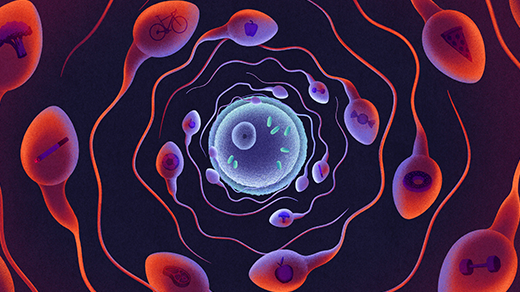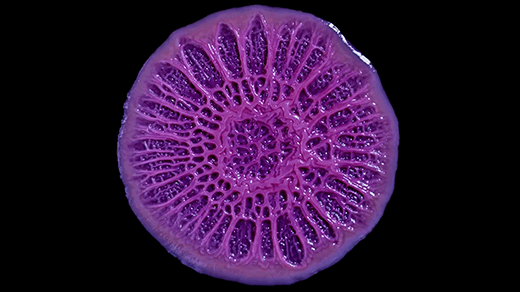What's up in
Metabolism
Latest Articles
How Dad’s Fitness May Be Packaged and Passed Down in Sperm RNA
Research into how a father’s choices — such as diet, exercise, stress, nicotine use — may transfer traits to his children has become impossible to ignore.
A Cell So Minimal That It Challenges Definitions of Life
The newly described microbe represents a world of parasitic, intercellular biodiversity only beginning to be revealed by genome sequencing.
Shark Data Suggests Animals Scale Like Geometric Objects
Despite their wide variety of sizes, niches and shapes, sharks scale geometrically, pointing to possible fundamental constraints on evolution.
The Microbial Masters of Earth’s Climate
A collection of short dispatches from the field of climate microbiology conveys the contributions that single-celled life forms make to our climate system, and how we can work with them to address climate change.
The Pursuit of Life Where It Seems Unimaginable
A decade ago, Karen Lloyd discovered single-celled microbes living beneath the seafloor. Now she studies how they can survive in Earth’s crust, possibly for hundreds or thousands of years, and push life’s limits of time and energy.
The Cells That Breathe Two Ways
In a hot spring at Yellowstone National Park, a microbe does something that life shouldn’t be able to do: It breathes oxygen and sulfur at the same time.
How Much Energy Does It Take To Think?
Studies of neural metabolism reveal our brain’s effort to keep us alive and the evolutionary constraints that sculpted our most complex organ.
‘Turbocharged’ Mitochondria Power Birds’ Epic Migratory Journeys
Slight changes in the number, shape, efficiency and interconnectedness of organelles in the cells of flight muscles provide extra energy for birds’ continent-spanning feats.
How a Biofilm’s Strange Shape Emerges From Cellular Geometry
Micro decisions can have macro consequences. A soft matter physicist reveals how interactions within simple cellular collectives can lead to emergent physical traits.








